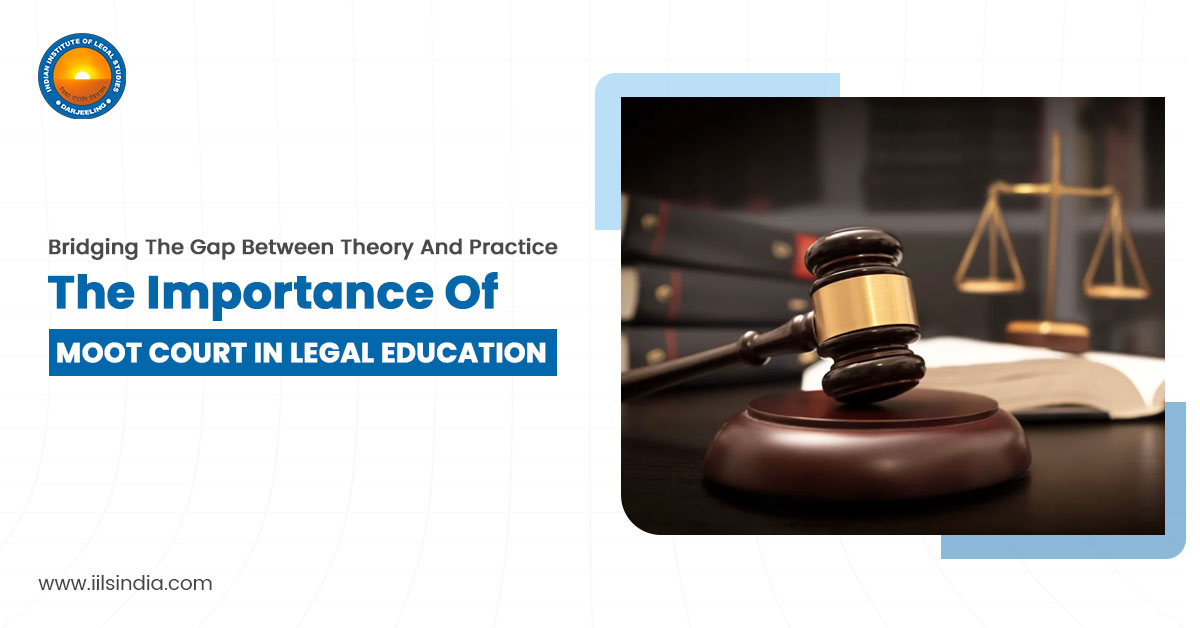Legal Education is not just about understanding statutes, regulations, and case laws. Students also have to develop the ability to apply their theoretical knowledge to practical settings. Moot court is one of the best resources for bridging the theoretical and practice gaps in legal education. Moot Court provides law students with a simulated experience of court proceedings, helping them transition from academic knowledge to practical application.
A Realistic Introduction to Courtroom Procedures
Moot Court provides a regulated atmosphere where students can experience the roles of lawyers, judges, and clients in a courtroom setting. Moot Court is an essential component of law schools, even in smaller locations like Cooch Behar, as it allows students to acquaint themselves with the process of creating legal documents, presenting arguments, and practicing court proceedings. Their practical experience equips them to tackle the obstacles that come with becoming legal practitioners, especially when it comes to litigation. One of the main advantages of the law colleges in Cooch Behar is the access to high-quality legal education they give students who might not otherwise have the means or opportunity to attend college in a larger city. The Indian Institute of Legal Studies one of the finest law college in Cooch Behar offer affordable, accessible education to students from rural or economically disadvantaged backgrounds. This democratizes the study of law, ensuring that students from all walks of life have the opportunity to pursue legal careers.
Developing Critical Legal Skills
Participation in Moot Court fosters the development of several key skills that are essential for future lawyers:
Research and Writing: Students must conduct in-depth legal research and draft comprehensive memorials or briefs that outline their arguments.
Oral Advocacy: Moot Court emphasizes the art of oral advocacy. It trains students to present their case persuasively, defend their arguments, and respond to judges questions effectively.
Critical Thinking and Problem-Solving: Students learn to analyse legal issues from various perspectives, think critically, and develop sound legal strategies.
These skills are not only crucial for success in the courtroom but are also applicable in other areas of legal practice, making Moot Court an integral part of legal education.
Practical Exposure in Smaller Cities
For law colleges in Cooch Behar, where students may have limited access to large legal institutions and direct courtroom exposure, Moot Court serves as an essential platform. It offers a way for students to gain practical insights into the functioning of the legal system without having to leave their hometown. By engaging in simulated legal battles, students from these colleges can compete with peers from across the country, honing their skills in a competitive yet supportive environment. Boosting Confidence and Professionalism
Moreover, moot court is essential for fostering student’s professionalism and self-assurance. It takes calm, mental clarity, and the capacity to make persuasive arguments under duress to stand before a panel of judges and make a case. Students are better equipped to serve clients and more competitive in nature because of the experience they receive from Moot Court sessions, which guarantees that they are ready for the demands of the real legal profession.
Conclusion
Moot Court bridges the gap between theory and practice, providing students with essential skills and practical exposure. Meanwhile, law colleges in regions like Cooch Behar expand access to legal education, address local legal needs, and foster social responsibility among students. Together, they contribute to building a stronger, more accessible, and equitable legal system for the region and the nation as a whole.

